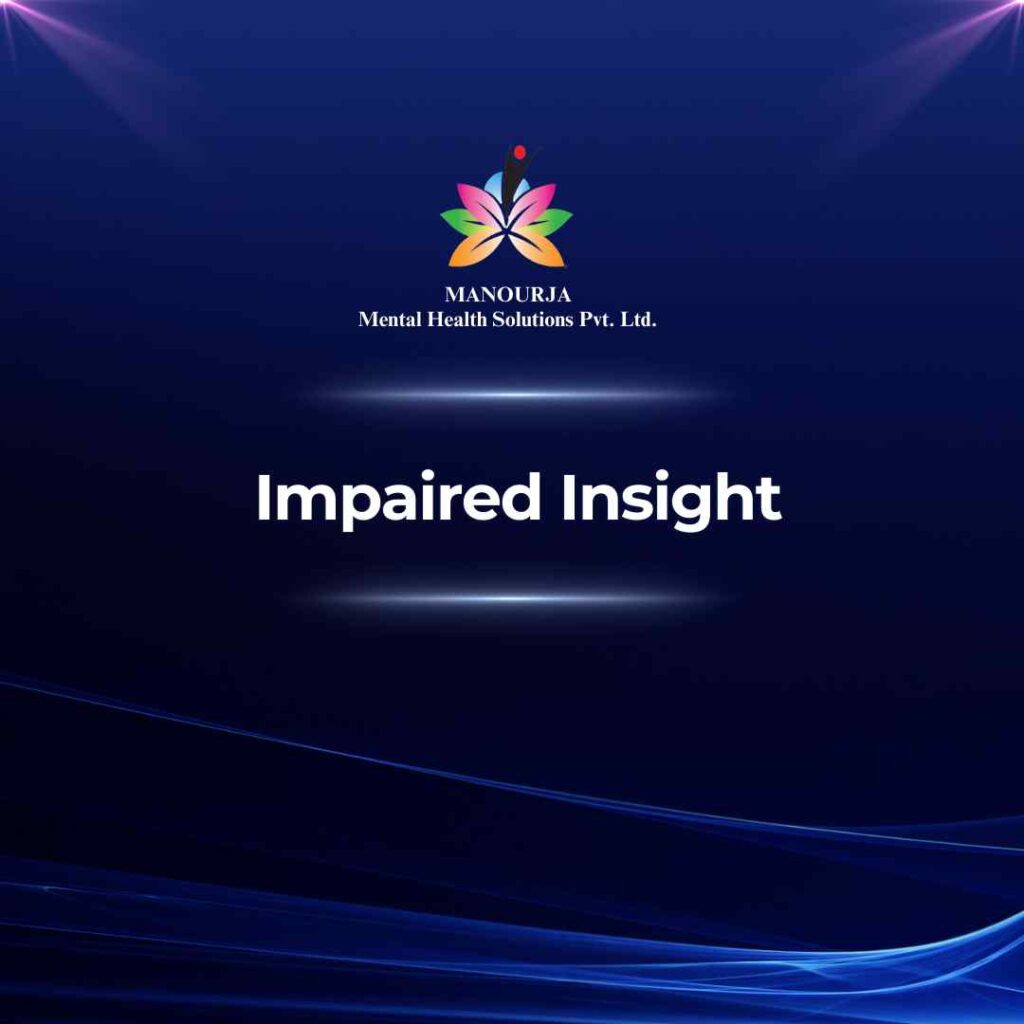Impaired insight

Impaired insight in the context of mental illness refers to a diminished ability to understand or recognize one’s own mental health condition, symptoms, or the consequences of one’s behavior. It is a crucial aspect of many psychiatric disorders where individuals may not fully comprehend the severity or impact of their illness on their lives.
- Lack of Awareness: Individuals with impaired insight may not acknowledge the presence or severity of their symptoms. For example, someone with schizophrenia may not believe they have a mental illness or may deny the need for treatment.
- Minimization of Symptoms: They may downplay the seriousness of their symptoms, dismissing them as minor or temporary despite evidence to the contrary.
- Denial of Diagnosis: Some individuals may outright reject a diagnosis provided by healthcare professionals, refusing to accept that they have a mental health condition.
- Inability to Recognize Consequences: There may be a failure to grasp how their behaviors or actions are affecting themselves or others, leading to continued difficulties in social, occupational, or personal functioning.
Mental Illnesses Associated with Impaired Insight
Impaired insight can manifest in various mental health conditions, including:
- Schizophrenia: Often characterized by poor insight into the presence of hallucinations or delusions. Individuals may not believe that their perceptions are abnormal or that they need treatment.
- Bipolar Disorder: During manic or depressive episodes, impaired insight may lead individuals to engage in risky behaviors without recognizing the potential consequences.
- Anosognosia: Specifically refers to a severe form of impaired insight common in conditions like schizophrenia or severe bipolar disorder, where individuals may lack awareness of their condition due to neurological or psychological factors.
- Substance Use Disorders: People struggling with substance abuse may have impaired insight regarding the impact of their addiction on their health and relationships.
Diagnosis and Treatment
Diagnosing impaired insight involves clinical evaluation by mental health professionals, often through interviews and assessments of the individual’s self-awareness and understanding of their condition. Treatment strategies include:
- Psychoeducation: Educating individuals and their families about their condition and its implications can improve awareness and facilitate treatment engagement.
- Therapeutic Interventions: Cognitive-behavioral therapy (CBT) and other psychotherapies can help individuals develop insight into their symptoms and behaviors.
- Medication: Pharmacological treatments, particularly antipsychotic medications for conditions like schizophrenia, can sometimes improve insight as symptoms are managed.
- Supportive Interventions: Providing a supportive and empathetic environment where individuals feel safe discussing their experiences and challenges can encourage self-reflection and insight development.
Conclusion
Impaired insight is a complex symptom that can significantly impact the management and prognosis of various mental health disorders. Addressing impaired insight often requires a tailored approach that combines medication, therapy, and supportive interventions to help individuals gain a better understanding of their condition and make informed decisions about their treatment
At MANOURJA, we believe in the transformative power of counseling. Our experienced therapists offer a safe and supportive space where you can explore your thoughts, emotions, and challenges. Through personalized counselling sessions, we’ll work together to develop coping strategies, build resilience, and achieve lasting positive change. Discover the path to a healthier, happier you with MANOURJA counselling services.
MANOURJA Rehabilitation Services
At MANOURJA, we’re dedicated to helping you in rebuild your life, after difficult times. Our rehabilitation services focus on understanding what you need to move forward, whether you’re recovering from addiction, trauma, or any psychological – social challenges. We create personalized plans, that are all about helping you, regain your strength and find hope again. With a caring team by your side, you’ll have the support to make real progress and take steps toward a brighter, healthier future.
.
